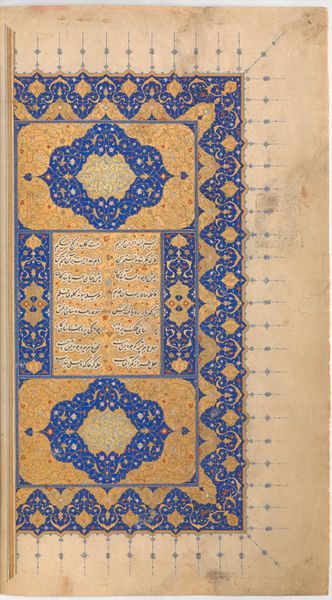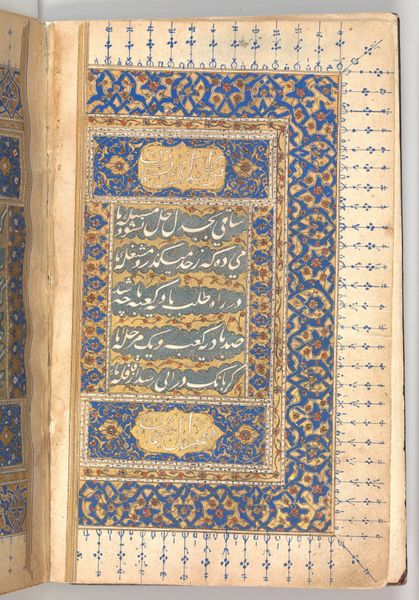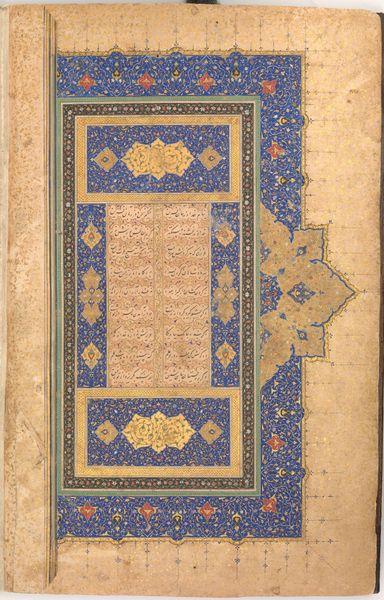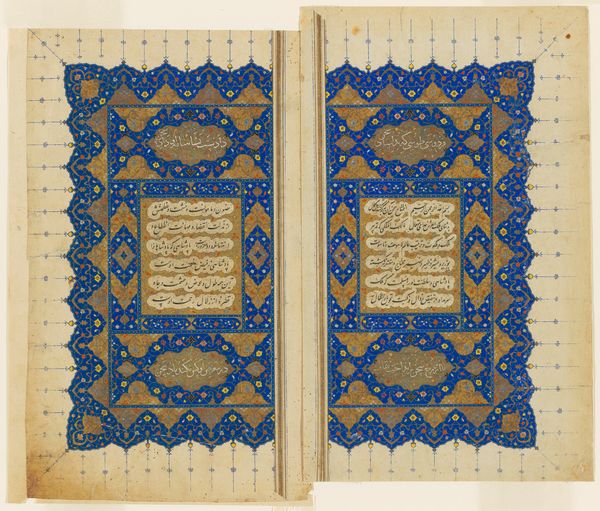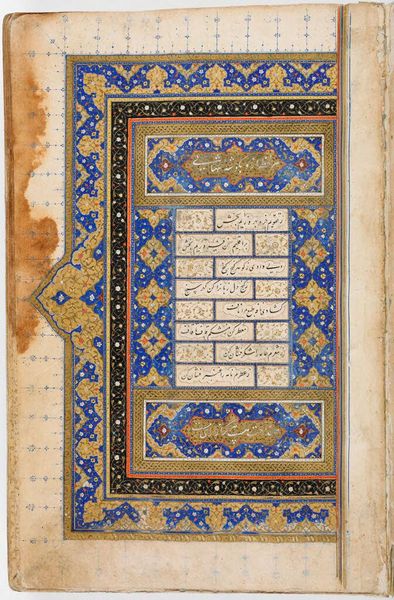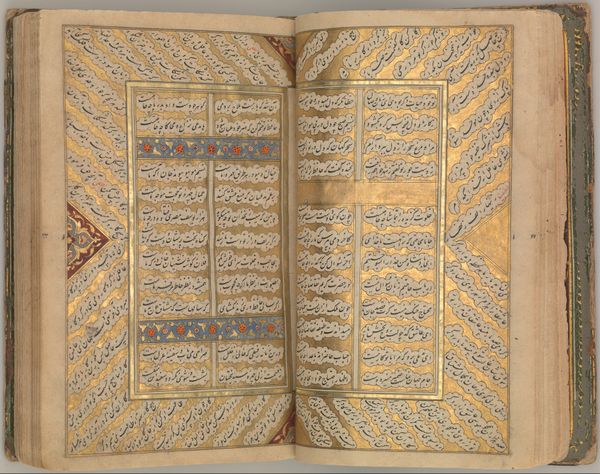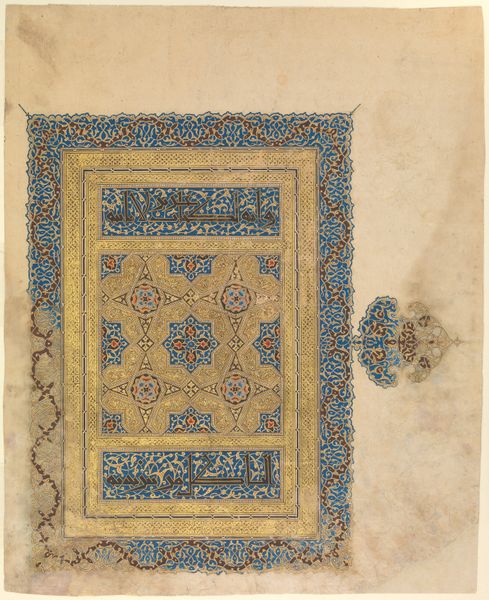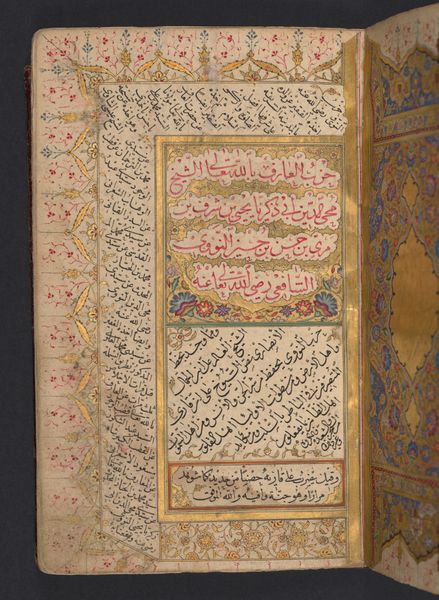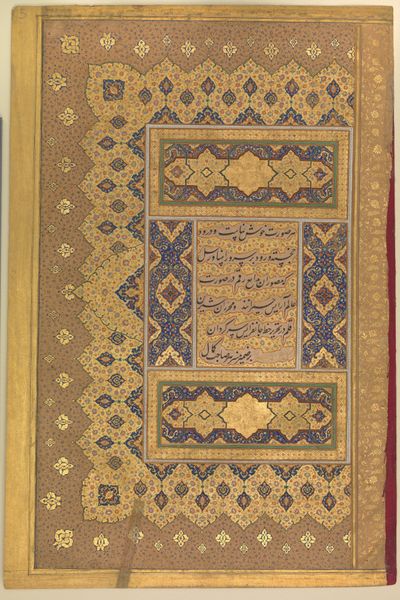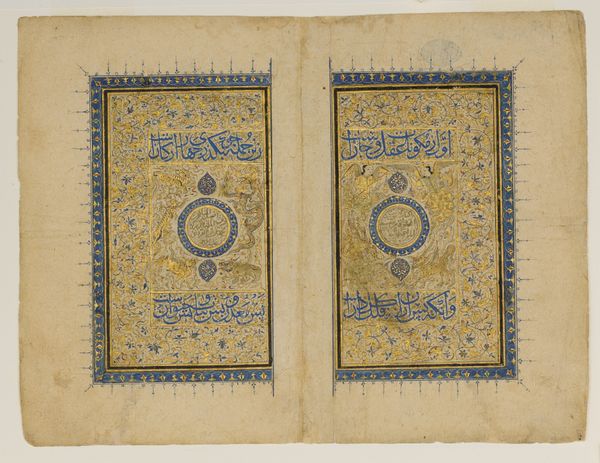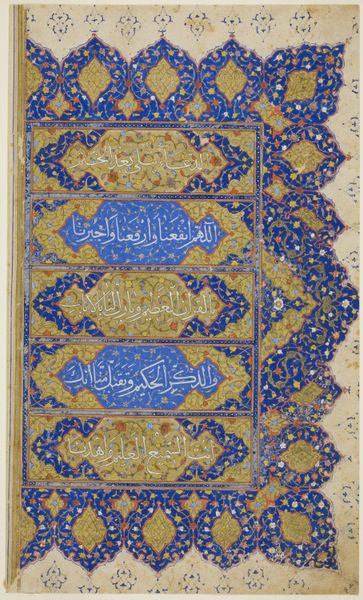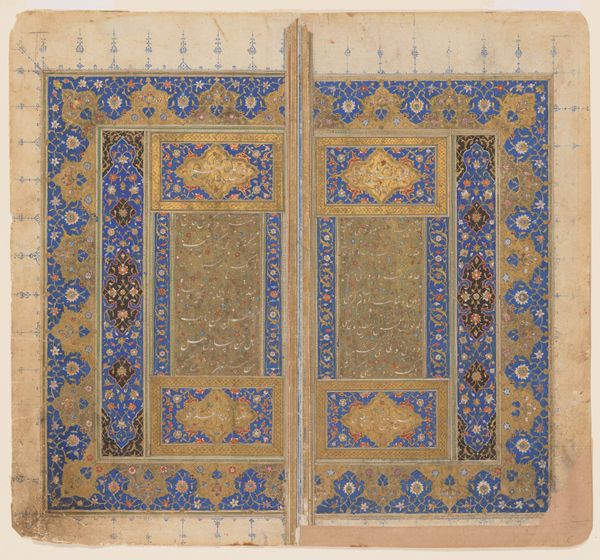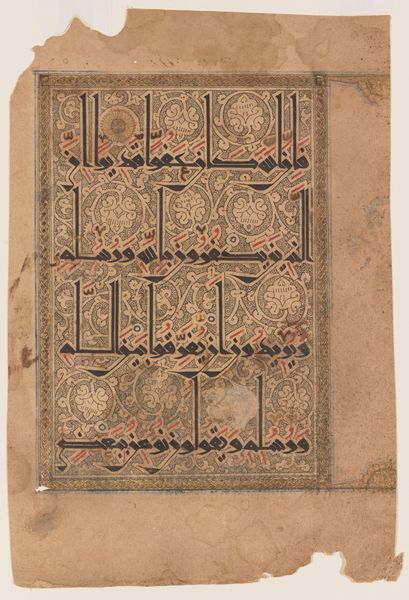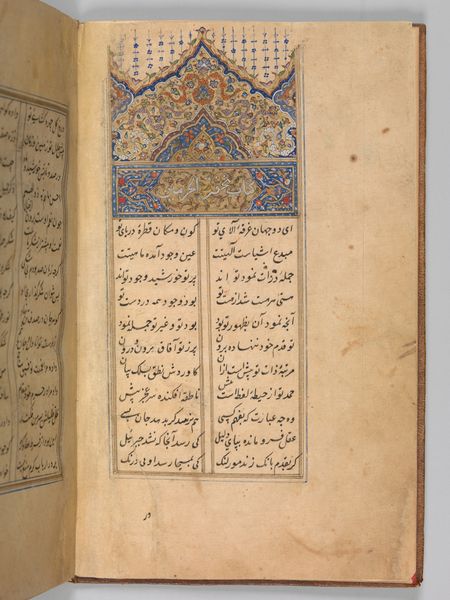
Overflap and Inside Cover of a Khamsa (Quintet) of Nizami of Ganja 1500 - 1550
0:00
0:00
paper, watercolor, ink
#
water colours
#
paper
#
watercolor
#
ink
#
coloured pencil
#
geometric
#
islamic-art
#
decorative-art
#
miniature
#
calligraphy
Dimensions: H. 12 5/8 in. (32.1 cm) W. 8 3/4 in. (22.2 cm)
Copyright: Public Domain
This is the inside cover of a Khamsa, or Quintet, of Nizami of Ganja, an illuminated manuscript, adorned with intricate patterns in gold and lapis lazuli. The dominant visual symbols here are the arabesques and geometric forms, emblems of cosmic harmony and divine order within Islamic art. Notice the repeating floral motifs, a symbol of paradise, echoing through various cultures as a sign of renewal and eternal life. Similar patterns can be found in Roman mosaics or Byzantine frescoes. The non-figurative geometric pattern invites a contemplative state, encouraging the viewer to lose themselves in the infinite repetition. This evokes the "horror vacui," a concept where every space is filled to ward off chaos. This fear of emptiness is a powerful, primordial force engaging viewers on a deep, subconscious level. These symbols continually reappear, evolving through cultural contexts, reminding us of the cyclical nature of history and the enduring power of the image.
Comments
No comments
Be the first to comment and join the conversation on the ultimate creative platform.
